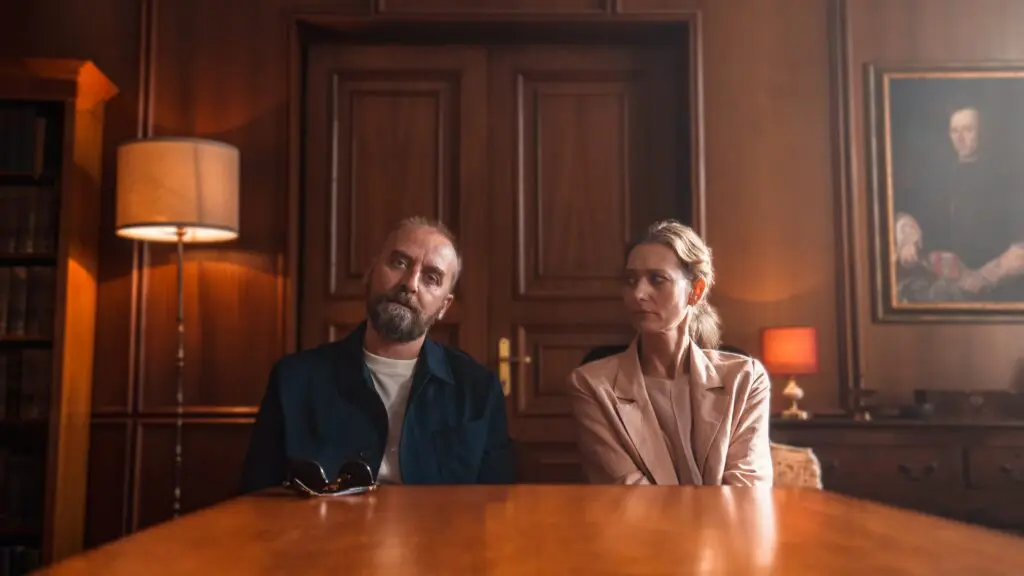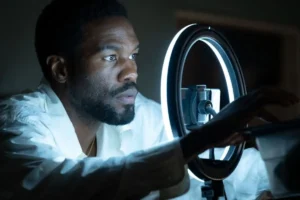Summary
Divorce is a lighthearted Polish comedy that satirizes the clash between religious doctrine and modern secular life. However, it falls apart slightly because it is far too casual and soft on the subjects it tackles.
For a movie titled Divorce (in Polish Rozwodnicy), you’d expect something resembling Marriage Story, but thankfully, we do not need to witness an ex-husband accidentally cutting himself, as this Polish film provides a lighthearted view of marital relations.
The story follows Goska and Jacek, who have been divorced civilly for twenty-three years. Jacek wants a religious marriage with his new partner and asks his ex-wife Goska if they can officially divorce through the Church. What conspires is institutional governance, as the Church refuses to give up on their marriage despite Goska being in her second marriage.
Divorce amusingly pits two values against each other. The sanctity of marriage within the Church and the secular perspective of modern-day relationships are in battle. The Church highlights children out of wedlock and the importance of sticking to vows under God, while the secular view is that both adults have moved on and are happier in their new lives.
But the Polish movie does not force opposing views down each other’s throats. It almost mocks both sides. It articulates the pros and cons of the relationship between the state and the Church in a lighthearted and surprisingly casual way.
Divorce, with its lighthearted approach, is likely to tickle the funny bone of some viewers, but it’s important to note that it may also offend those of the Christian faith. The movie’s humor sometimes borders on caricature, particularly in its portrayal of priests and religious figures as comical barriers in a twenty-three-year divorce.
There’s an unrealistic notion of the Church forcing two people to remain married despite the woman already moving on and enjoying her second marriage. I believe this is not a realistic viewpoint, but the movie makes it villainous at times.
From a broader perspective, Divorce delves into other aspects of marriage and divorce, such as the impact on children and family members, the differences in households, and the stigmas associated with finding a new partner.
However, the movie steers clear of any deep ideological or potentially poignant statements. Instead, it maintains a lighthearted tone throughout, ensuring that it never becomes a heavy case study of marital scenarios.
In fact, if anything, Divorce douses itself in the calamities of paperwork, tribunals, and due process for two people already living different lives.
Take what you will from this movie. It does not push boundaries or even attempt to. While it does push the secular versus religious view, I doubt anyone will feel aggressively provoked. Those who believe in God may be momentarily offended by the caricature nature of the Church, but the movie is not worth the fight.




